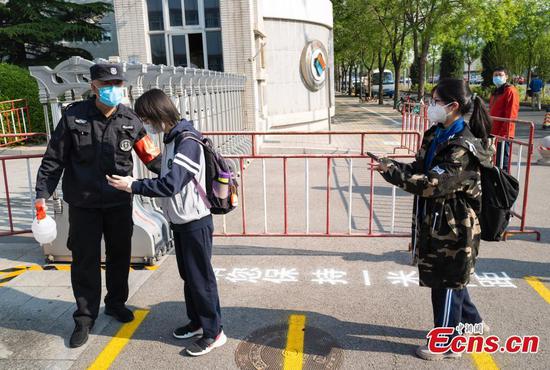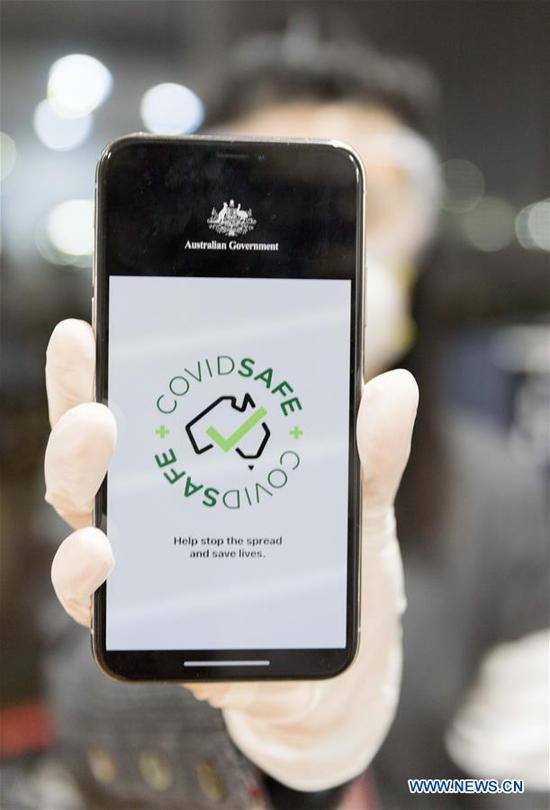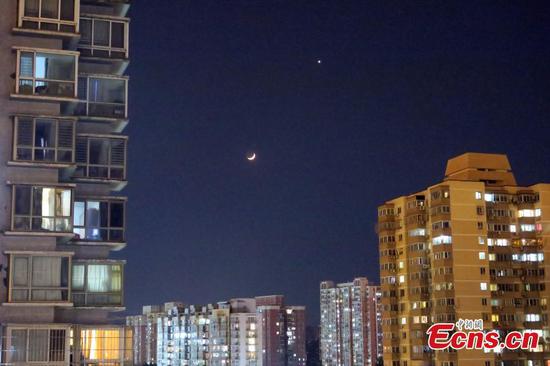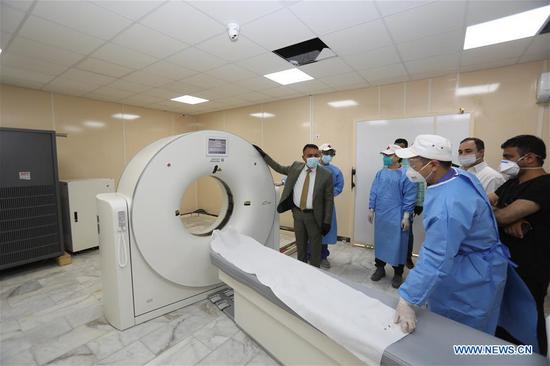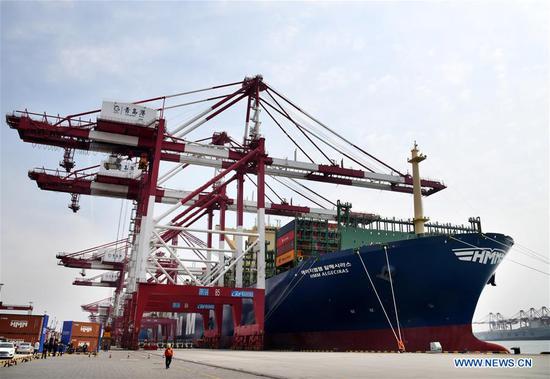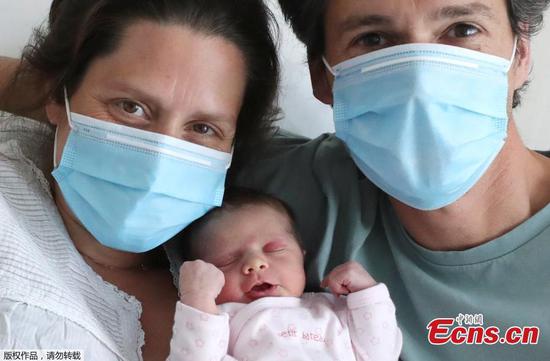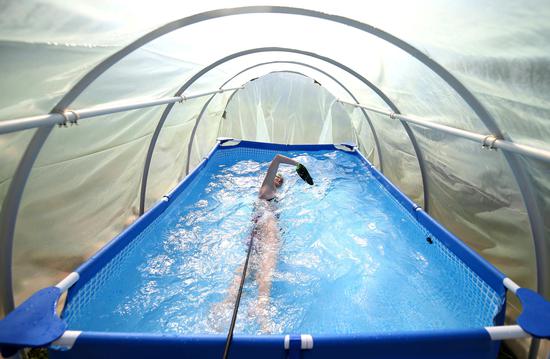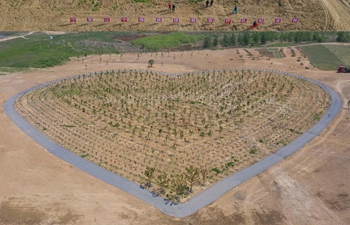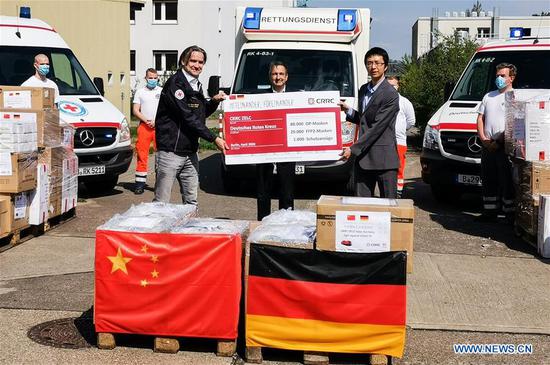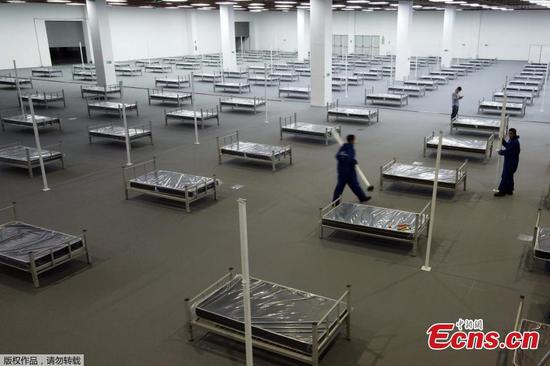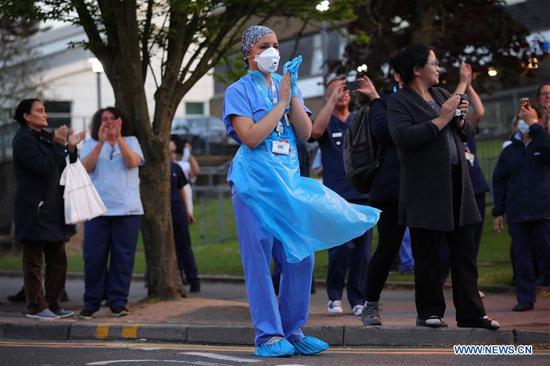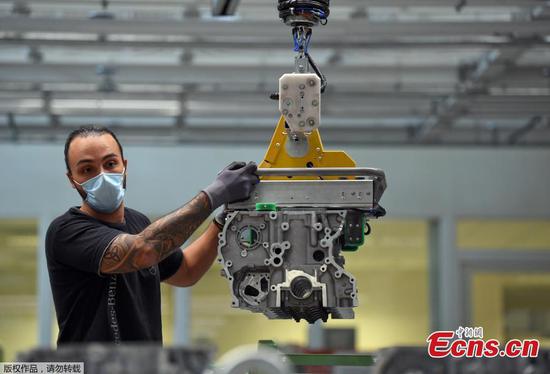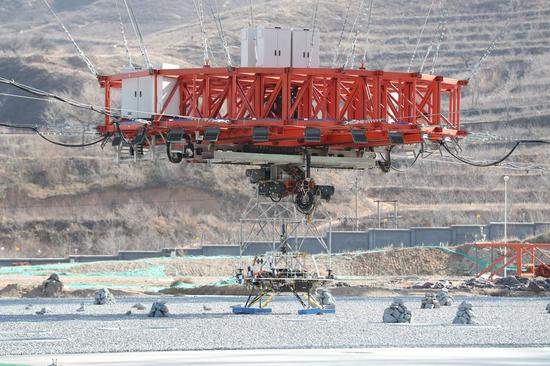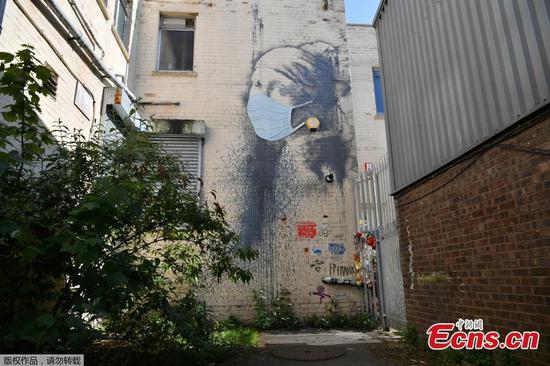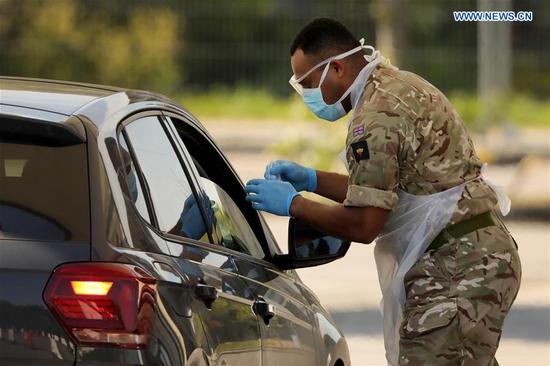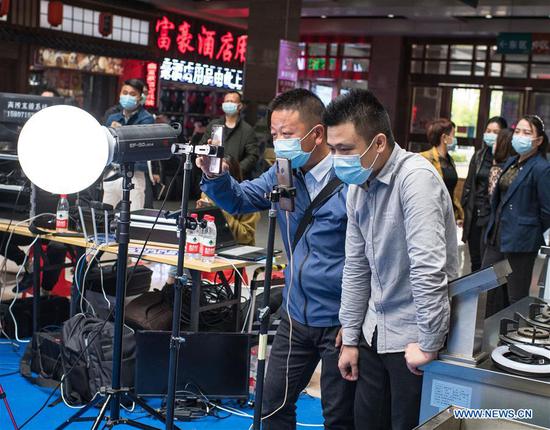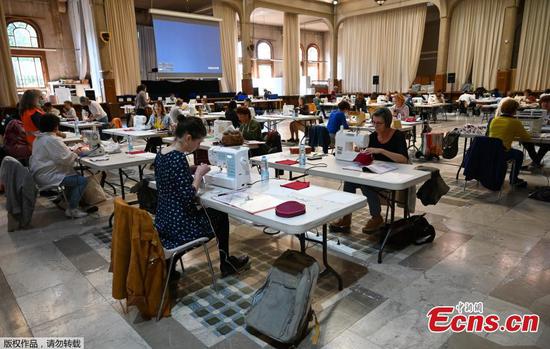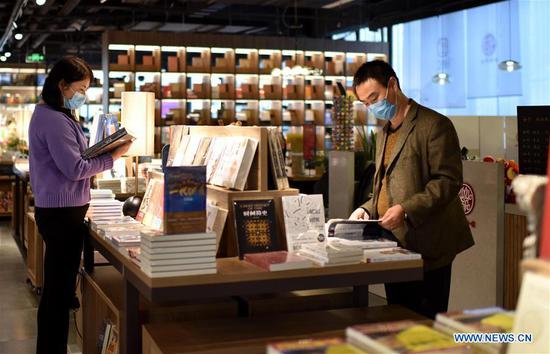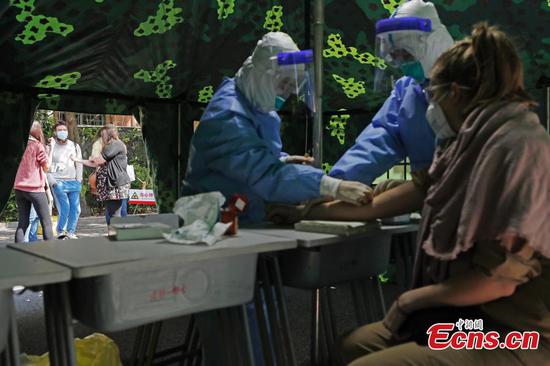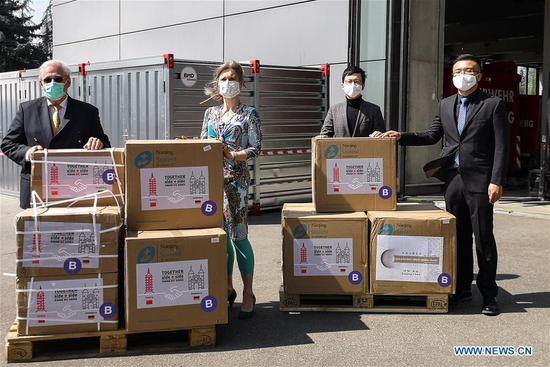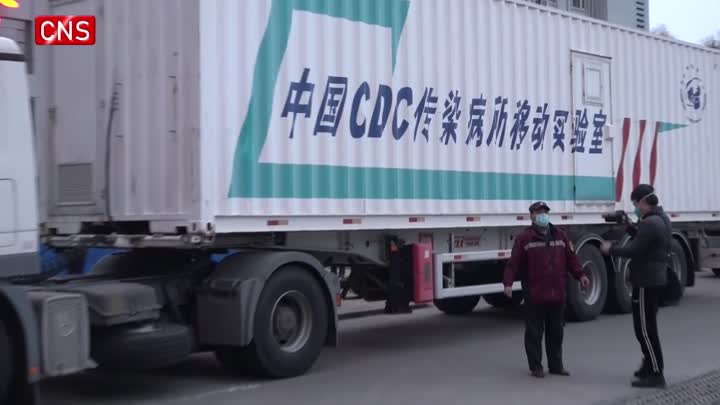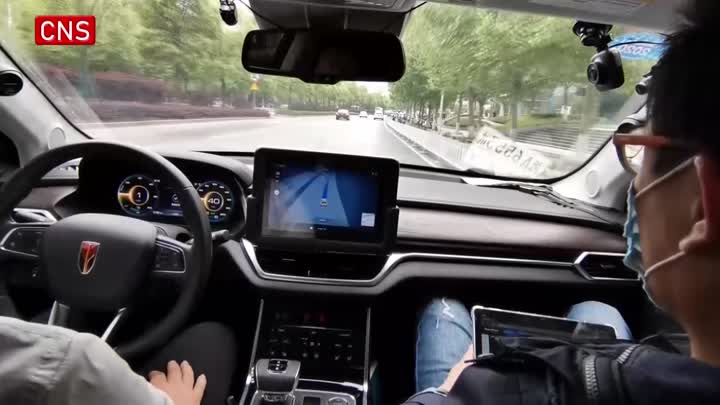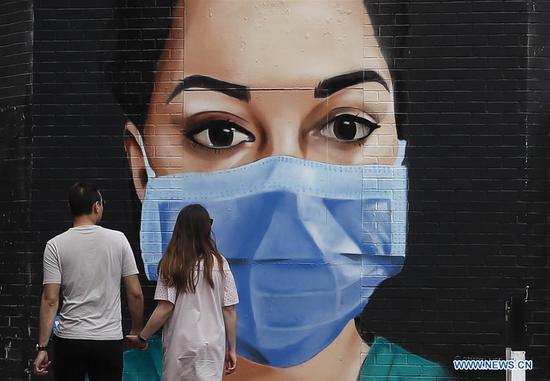
A couple walk hand in hand past a mural of a masked NHS (National Health Service) worker painted on a wall in London, Britain, on April 26, 2020. The number of confirmed COVID-19 cases in Britain hit 152,840 as of Sunday morning, marking a daily increase of 4,463, the Department of Health and Social Care said Sunday. As of Saturday afternoon, another 413 people who tested positive for the disease have died in hospitals, bringing the total number of coronavirus-related deaths in the country to 20,732, said the department. (Xinhua/Han Yan)
United Kingdom Foreign Secretary Dominic Raab has said the nation's exit strategy from the novel coronavirus lockdown will be like a "new normal" and confirmed Prime Minister Boris Johnson will return on Monday.
Speaking on Sky News' Sophy Ridge on Sunday program, Raab rejected fresh calls from senior Conservatives for restrictions to be eased and said the outbreak was "at a delicate and dangerous stage".
"We need to make sure that the next steps are sure-footed, which is why we are proceeding very cautiously and we are sticking to the scientific advice with the social-distancing measures at this time, whilst doing all the homework to make sure that we are prepared in due course for the next phase."
He added: "We've set out the five tests for what the next 'transitional phase' would look like. It won't be just going back, it would be a new normal if you like-with social distancing measures adapted to areas which are currently closed off."
According to reports, people entering the UK could be forced into home quarantine for two weeks under plans for the "second phase" of the government's response to the pandemic.
The move follows growing pressure for tighter border controls amid the crisis and would include UK citizens returning from abroad.
Speaking at the UK daily news briefing, Environment Secretary George Eustice said there are "encouraging signs of progress" in the battle against the novel coronavirus.
But before it's safe to adjust any lockdown rules, the government's five tests must be met, he added, confirming they include "making sure the NHS can cope, that daily deaths continue falling consistently, that the infection rate is decreasing and operation challenges are met, and that there no risk of a second peak".
Also at the briefing, Medical Director of NHS England Stephen Powis said there is now a very definite trend in reduced hospitalizations. He said data shows that "the hard work everybody in the country has been doing is paying off".
It came as the number of people confirmed to have died with COVID-19 in hospitals in the UK reached 20,732, with another 413 deaths announced on Sunday.
Speaking earlier, on the BBC's Andrew Marr Show, Raab reiterated the UK government was on track to reach 100,000 daily tests by the end of April.
He said: "We have certainly got to get the daily testing up to hundreds of thousands. That, along with tracking and tracing, will give us more flexibility to open up measures, open up access. That, along with vaccine and therapeutics will be the medium-long-term way to fight this virus."
The UK military is to begin testing essential workers for novel coronavirus in mobile units that will operate in "hard to reach" areas, the Guardian reported. As many as 96 new mobile facilities will travel to care homes, police and fire stations, prisons and social welfare centers.
Raab said Johnson was "raring to go" after recovering from a COVID-19 infection that hospitalized him.
The Sunday Telegraph reported that the prime minister, who studied classics at Oxford University, had quoted the Roman statesman and orator Cicero when speaking to advisors about the country's lockdown strategy.
The health of the nation should be "supreme", he is reported to have said-or "salus populi suprema lex esto"-interpreted by some as suggesting that Johnson is against any easing of restrictions.










